Norway's monarchy is not democratic and lacks transparency. These are just some of the reasons it should be scrapped, according to one Life in Norway contributor.
The recent passing of Britain’s Queen Elizabeth has left many people in the U.K. considering the role of the monarchy. Yet this isn’t a discussion we hear very often in Norway.
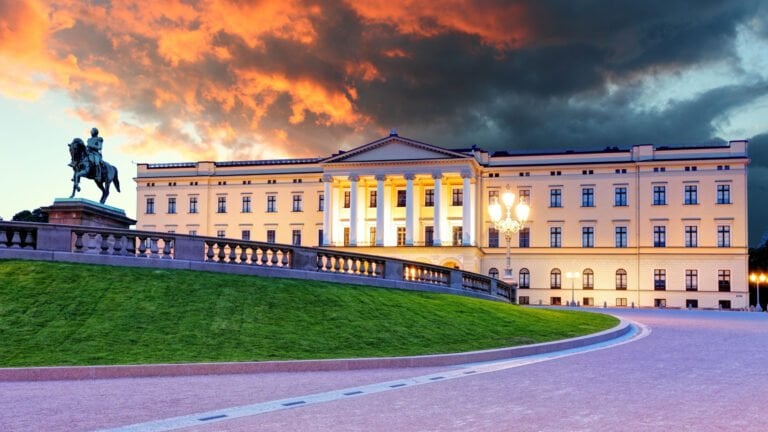
Almost 80% of people in Norway support the monarchy, and the Royal family is more popular than ever. So why do I think Norway should scrap the monarchy? Here are some reasons why.
It’s not democratic
Citizen participation is the most essential part of any democracy; the people elect the Head of State. When such power is achieved through birth, it’s inherently not democratic. This is the most obvious argument in favour of a republic.
Lack of transparency
Another very important part of Norway’s democracy is transparency. The Freedom of Information Act establishes that everyone, not the least the press, can request public information. The law applies to all government institutions and the public sector in Norway.
This is crucial to national security, to control public spending, and even to prevent corruption. Although some content is exempt from the public.
Read more: British and Scandinavian Royals – One Big Happy Family
However, despite being financed through everyone’s tax payments, the Law doesn’t apply to the Royal Castle and Family. The Castle’s administration can refuse the press’ requests to look into, for example, how the Royal family spends money, or to give out any other document that may be of interest to the public.
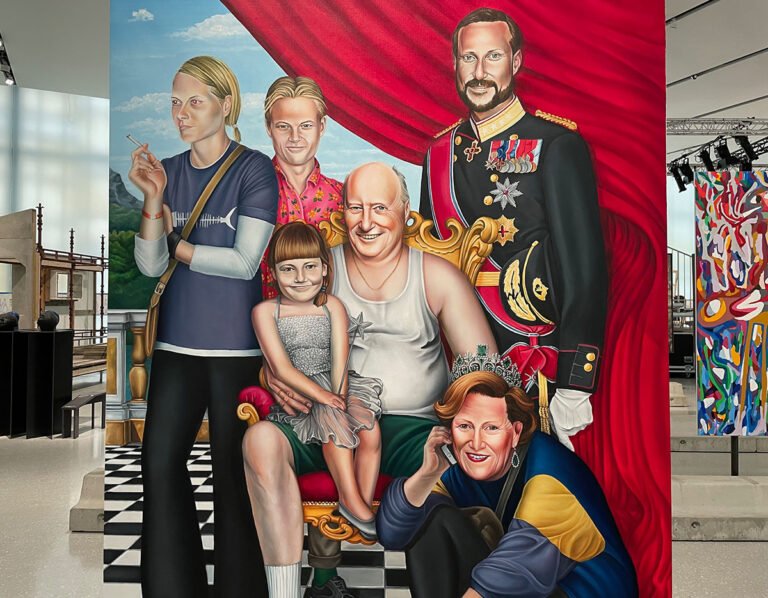
In 2016, The Norwegian Press Association sent a formal letter to the Ministry of Justice in Norway to include the Royal Castle in the Freedom of Information Act.
The King’s immunity
The King is not above the Law, but he can’t personally be charged or accused for any offence. In Norway, this kind of immunity is only granted to diplomats.
Even if a president also may have some sort of immunity, this is not given as a birthright, but granted through a democratic election process.
No retirement age
People in Norway must retire before they turn 70 years, except the King or Queen. There is no possibility for the Parliament to remove a King from his position due to age.
However, King Harald has asked his family to take action if he suffers from dementia or Alzheimers.
We never know what we get
The Royal Family does an excellent job and I’m not saying this could happen in Norway today. However, Royals around Europe make bad decisions and have also been involved in scandals and even crime. Such occurrences, combined with the lack of transparency and the King’s immunity, is not a very good mix.
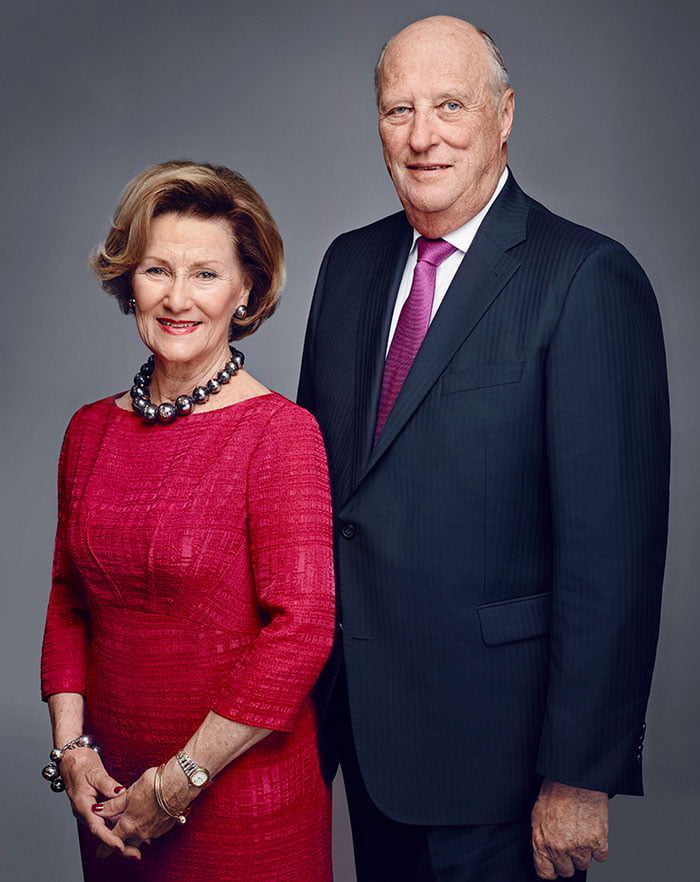
And our Royal family is neither without controversies. Martha’s fiance Durek Verret, has been criticized because of his outspoken approach to modern medicine. He has, for example, been advertising a medallion he claims will cure Covid 19. Martha is number four in line to the throne.
Lack of freedom and human rights
According to the Constitution shall: “All inhabitants of the realm have the right to free exercise of their religion”. And paradoxically: “The King shall at all times profess the Evangelical-Lutheran religion.” This automatically includes the heirs. And implies they don’t have freedom of religion, unless they abdicate or give up the succession to the Throne.
The royals have a very limited freedom of speech and they are expected to be politically correct at any time. Their activity in social media is probably monitored and with strict limitations. Even “liking” an image can imply some sort of opinion. Of course, they can’t vote.
They are not free to join any organization, which is also a human right. Neither can they appear in public without security guards. And even though the Norwegian media for the most part respects some privacy, everything is potentially newsworthy; every drunken escapade, illness and diagnosis, every girlfriend or boyfriend, every break-up.
Monarchies are built on archaic traditions and values
While almost one third of couples in Norway choose not to get married, heirs must be born in legal marriage. The princes and princess can neither marry without personal permission from the King.
Additionally, the Constitution states: “The Royal Princes and Princesses shall not personally be answerable to anyone other than the King, or whomever he decrees to sit in judgment on them.”
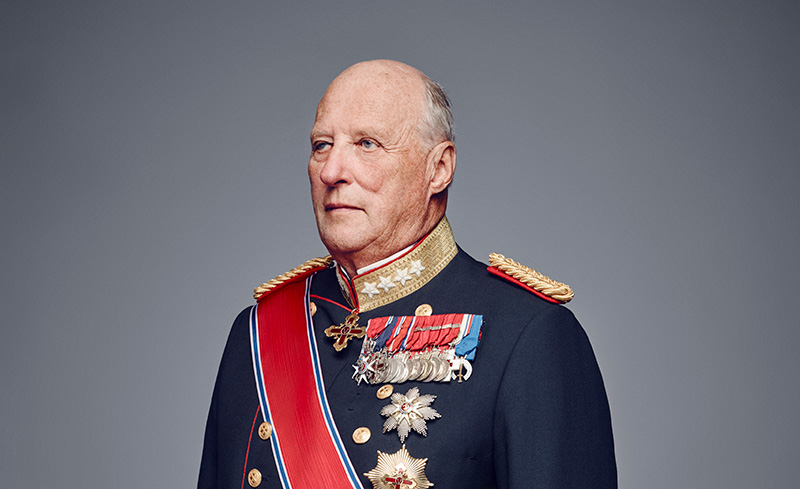
All of this implies Norway’s most important law justifies a restraining and old-fashioned life for a group of people: Christian, heterosexual, married with biological children, and where grown people are not free to make life choices without a parent’s or grandparent’s permission.
This combined with lack of human rights, does in my opinion, not entitle them to a free life. Neither does all of this reflect Norway’s diversity.
It’s not easy to abdicate
An argument commonly used by monarchists, is the possibility of giving up succession to the Throne or to abdicate. But is this a choice anyone should have to make?
Being raised as an heir from birth, and then going into history as one who didn’t or couldn’t want to be the King or Queen of Norway, can hardly be easy. Hypothetically, because you want to marry a Muslim and convert, because you want to go into politics, or just don’t feel strong enough?
Lack of criticism
The Parliament took out the word “holiness” from the Constitution some years ago. But I still think the level of respect for someone who is Head of State is frankly, too high. There are very few who criticizes the King and Queen personally. Even when it is relevant.
Many may not know that when Church and State separated some years ago, The King was asked what he thought about keeping the paragraph in the Constitution which states the King has to be of Lutheran faith.
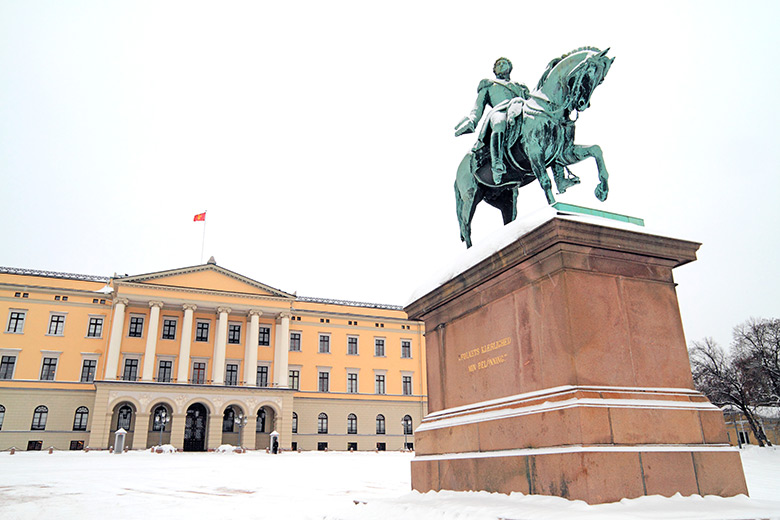
When asked for his opinion, the King replied: “It is natural the King remains Christian”. And this resulted in the Parliament not changing the Constitution, even though the majority, most likely, was in favour.
And as such, Church and State in Norway are not totally separated. Additionally, heirs don’t have freedom of religion. Only a few newspapers had the courage to speak up. This would never be possible in a republic.
We romanticize the monarchy
The Royal family is privileged, and probably for the most part, happy. But most monarchists seem to forget this isn’t something they have chosen, and that it may not be a very desirable life.
Frankly, I think all the glory and admiration of people just because of their birth, belong in fairy tales, and not in a democratic country in 2022.
Anyway, it is close to impossible to have a rational constitutional debate in Norway. People tend to get overwhelmed with emotions, and it almost always comes down to how wonderful the Royal family is.
That’s why most people won’t listen to any of these arguments, and why Norway most likely will remain a constitutional monarchy in several generations to come.


Nice article. I think, however, you have the role of a republic confused with some type of authoritarian state. A republic guarantees the constitutional rights of the minority while democracies allow tyranny of the majority.
A republic is are far superior to a democracy and this is why the founders of the United States chose this method of governance over others. No monarchy, people have the power through elected representatives and the minority is safeguarded from the majority.
Why is this article published here? Given that only 20% of the population is against having a Monarchy, why, by publishing this, give her an audience where she pretends that the Monarch is a problem by a large number of persons? I assume she has forgotten that had Norway not had a Monarchy during WW2, Norway would have ceased to exist. I am hope anyone reading this story realize her reasoning is weak.
It’s *clearly* labelled an opinion piece. Feel free to submit an article supporting the monarchy if you like. See how that works?
presumably this site is supposed to be about “life in Norway”, not about what’s wrong with life in Norway. I have made it a point to never complain about life in Norway, except one thing: I complain about Norwegians who complain about life in Norway. Perhaps “Vicky’s” real problem is she is married to a Canadian … I suggest she and hubby move to the once great nation of Canada to live under Herr True Dough who imagines he is a king …”Canada … c’est Moi!” God bless Norway …
Unfortunately, Canada is also a monarchy, and already has a real King (Charles) :-D.
I also think everyone has the right to “complain”, and they should. It is an important part of democracy. And that also goes for people immigrating/moving to Norway. They see the country from different angles, and there is a lot to learn from this group. Which Life in Norway also is about. Not painting a rosy-red picture of Norway.
Doing a very quick search, I found this short article in support of Norway’s Monarchy: https://royalcentral.co.uk/europe/norway/support-for-the-norwegian-monarchy-continues-to-grow-172935/
I have close friends in Norway and during a visit there, I noticed a beneficial contrast between Norway’s leadership and our’s in the U.S., to the benefit of the Norwegians. I see the value in the Monarchy as a consistent moral compass, that helps its people maintain a great pride of country, and strong social values like caring for each other, remaining humble, helpful, and friendly. There is surely good reason for an 80% approval rating of the Monarchy and I gather that it may be that the citizens appreciate their ROI. I would caution against criticizing one of the happiest countries on this planet for not governing its people correctly. I think the Monarchy, as long as it remains a guide for good Christian morals, will keep this happiness going.
What on Earth does Christianity have to do with morality?
oh, please … leave your smart a… remarks for some endless thread on twitter … thank you
That’s a legitimate question.
Wow. Possibly one of the most ignorant statements I’ve ever read. Nice job there!
Your last sentence is unintentionally ironic. Norway is now a country in which 70% of the population do not believe in a god. So clearly, our morality does not come from being Christian. And as the article points out, it is anachronistic that the constitution still requires that “the King shall at all times profess the Evangelical-Lutheran religion.”
The morality of Norwegians, as well as pretty much every nation in Christendom comes mostly from Christianity. You can sprinkle some Greco-Roman philosophy as well but no other ideology has had more impact on the West’s overall legal framework, philosophy, morality and outlook than Christianity.
The concept of the individual as a sovereign, or them having a connection with divinity is a Judeo-Christian one and is the basis for all that I mentioned.
Just because western society as a whole is becoming more secular doesn’t mean its morality didn’t come from Christianity; it absolutely did.
Of course, Christian morality did not emerge from a vacuum but rather built on existing ideas and edicts, for example the Code of Hammurabi. Today in Norway, Christianity is in important ways profoundly at odds with our shared morality and values, for example with regard to homosexuality and sexual equality. So to say that Norwegian morality “absolutely” comes from Christianity is quite a stretch.
Glenn Martin
1- Secularity has nothing to do with monarchy or republic! I’m a deist and a monarchist.
2- That law only applies on the monarch and their heirs. It’s not against the freedom of people.
3- You may not be Christian today but Christianity had its affected already on your culture.
I’m convinced. Get rid of them.
Thank Óðinn that like 70-80% don’t agree with either you or her.
Opinion: The author should go to DR Congo or North Korea or Iraq or any other republics she likes.
Because we have a nice king who has already occupies a “holy” position, corrupt “elected” politicians are prevented from assuming a greater role than simple legislators. Because the king’s duties are defined and limited by the law, he can’t become a tyrant. He can’t bypass the law because there are too many sensitivities about the monarch but there is not any sensitivity about a president. A president can easily become a war criminal (Assad/Obama/Saddam) or a dictator (Erdogan/Putin) and still remains justified and beloved because “he is one of us” Just read the Animal Farm to understand what I mean! Another thing is a prince/princess has been trained all his/her life for the role. Just look at Joe Biden or Raisi to understand what I mean!
Another thing is … a royal family is much better than too many presidential privileged families! POTUS is much more costly than Scandinavian royal families.!
Norway is a monarchy. It’s a great country. It’s democratic. The royal family are nice. People in US begrudge the life in Norway.
God Save Our King
I know my comment will not be shown but at the end I want to say some secret to the author! If you hate royal families because they are rich … the royal families remain rich after their countries become republics! Just look at Italian, French, German, Bulgarian and Russian royal families living today!
Being a republic, doesn’t mean we have to copy the model from US or Turkey. Just look at Finland or Iceland for example. Personally I am not at all envious of their wealth. Money is overrated, and especially compared to basic human rights. Which the royals are lacking today.
The monarchy is a force for good in an ever changing world where corruption and instability reigns. Politically monarchs remain neutral in public and they respect and uphold the constitution leaving politics and the law to appointed officials.
I firmly believe countries with a monarch are happier and freer than countries ‘ruled’ by a republican head of state.For that reason those citizens living in a country whose head of state is a monarch should count their blessings and be thankful for the role they play at home and abroad.
The real problem of monarchies is that they are too democratic and free so enemies become powerful and eventually overthrow them!!!!!
In Italy and Austria or Turkey it is illegal to try to revive the monarchy!!!!
But it is FREE to call for a republic in monarchies! This is the main problem!
Lefties like you want to destroy the most democratic country in the world by labling it “non-democratic” and turn it to Russia.
We need to scrap republicanism. We need to criminise republicanism if we want to protect our democracy.
“Lack of freedom and human rights”
Are you kidding!? Have been to Turkey? Pakistan? France? I’ve been in Turkey, Pakistan and France! ALL are republics! I fled Turkey. I survived Pakistan. I got arrested and tortured in France because some guy had similar name to me!
You should go there to understand what “lack of freedom” means!
I wll be loyal to the king and his family. In a world full of Bidens, Erdoğans and Putins. Norway is a safe place.